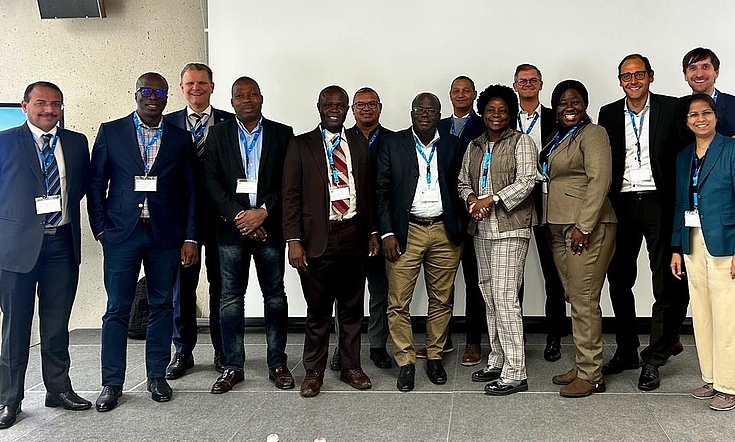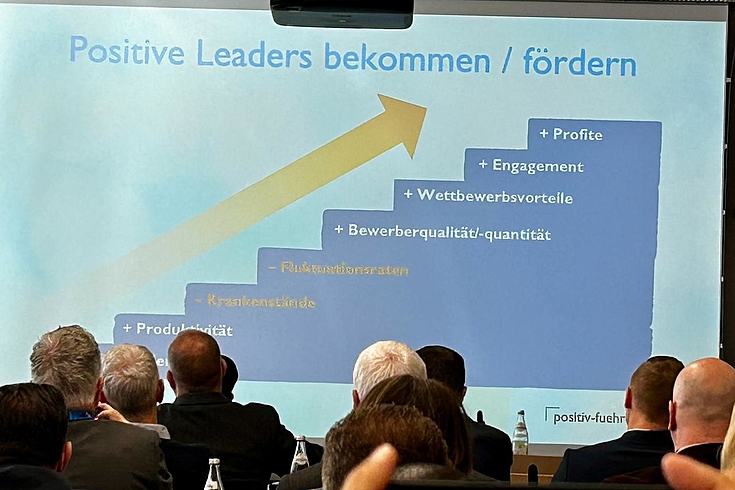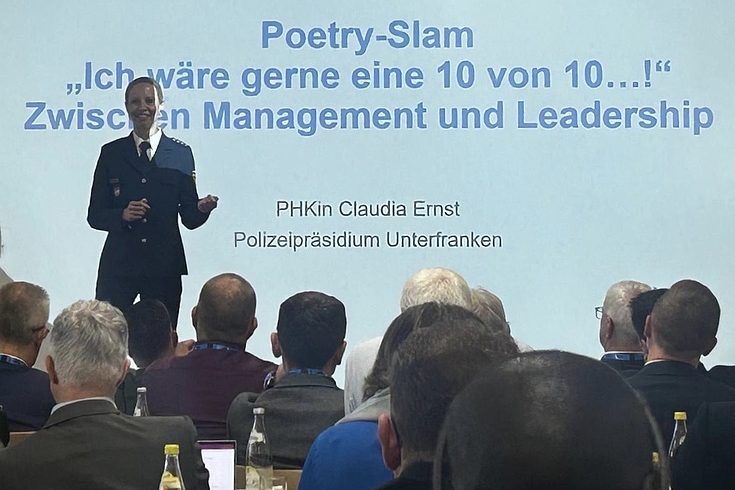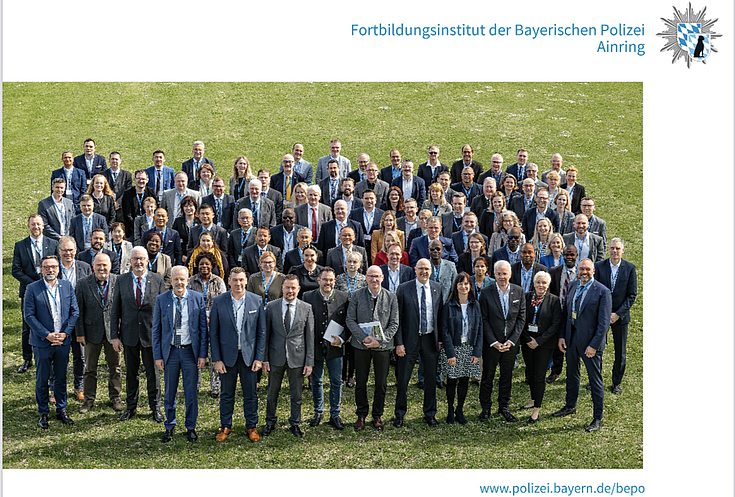International Conference for Law Enforcement officials and experts
Ainringer Easter Days

Diverse participants enjoyed the conference together
HSF
The Ainringer Easter Days at the further-training institute of the Bavarian Police in Germany are an established and recognized get-together of police and law enforcement leaders, researchers, and HR specialists from all over the world. It's a place of knowledge transfer, learning, and networking. This year, representatives from 20 countries participated, many from the "global South" and "global North". It has been valuable to connect and share experiences with law enforcement experts from Germany, India, Poland, Ghana, Austria, Thailand, Hungary, Togo, Serbia, Benin, Philippines, Switzerland, and many more.
"Leadership in challenging times" is a crucial topic not only for police forces in Europe but also for police and law enforcement agencies in South Africa.
Lots of relevant inputs, insights & reflections were shared, on inter alia:
- Social change using the example of Generation Z: Challenges for police leadership
- Recruitment and integration of police cadets into the police
- Error culture within the police
- Leadership with positive psychology
- Leadership in multi-ethnic societies
- The role of the police in assemblies (crowd control) and the importance of (tactical) communication

Facilitating positive leadership
HSF
When we talk about strengthening the criminal justice system and improving human security, we will only see progress through highly professional leadership. Leadership in our law enforcement agencies becomes one of the central - if not the most important - preconditions for ensuring that citizens are able to experience the value of the rule of law. Or in other words: Without professional and well-trained leaders, human security will decline as well as the trust of citizens in the state to protect and promote the rule of law and democracy in general.
Therefore, leaders of police organizations and other law enforcement agencies play a crucial part in our democratic societies, as underlined by the Bavarian Police Commissioner, Mr Schwald. Leaders bear the responsibility to provide guidance and serve as role models for their employees. They need to lead by example, build a culture of trust within their organization and towards citizens, and create organizations that are able to fight crime and enable citizens to feel safe.

Reflecting on management and leadership
HSF
The leadership culture within police forces has a direct impact on achieving acceptance, trust, and collaboration by the citizens, and it has a direct impact on the functioning of the rule of law. In democratic societies, police forces (and other law enforcement agencies) are the most important organizations to protect human rights.
At a time when global challenges and social changes are increasing, leadership becomes even more important. The dynamics and complexity of these changes, often accompanied by uncertainty and ambiguity, impose a special demand on leadership. Critical self-reflection, error culture, de-escalation and tactical communication, guiding and empowering large numbers of employees, analytical and strategic competency are a few elements of skills required for police leaders.

Great opportunities for learning and intercultural exchange on police work
HSF
A few takeaways:
- Communication and decision-making culture: A transparent and trustful/tactical communication culture, as well as a positive and jointly developed meeting and decision-making culture, are fundamental for successful leadership in both everyday work and crisis situations.
- Shared values within and across the criminal justice system: A crucial factor for the police is a shared value foundation based on our democratic order. Leaders have a special responsibility to protect these values both within and outside the police force. Leaders are obliged to motivate but also must act if they observe any negative developments. Because negative developments we ignore today will lead to a loss of public trust tomorrow. And a police force that no longer has the trust of the people will struggle to fulfill its legal mandate. Leaders must actively fulfill their leadership role and establish a value-based culture of trust and learning from mistakes. By doing so, leaders lay the foundation for successful, socially accepted, and constitutionally legitimate police work.
- Police as protectors of democracy, especially in times of crisis: "Showing leadership" is not only directed internally. In challenging times - with multiple crises - a functioning and trustworthy police force is a stabilizing factor for our rule of law and democracy. This is why political education and training within the police force are so crucial. Despite all their experiences, police officers must possess a stable democratic compass throughout their entire professional lives.
Of course, there are many more building blocks we need to put in place to enable our police to respond to crime more efficiently. But without depoliticizing the police and without top leadership, all other interventions will fail.
Subscribe to our Newsletter to receive event invitations and new publications via email - and follow us on Facebook and Twitter for news about our work.
